The bronze-winged pionus is a short-tailed, stocky, medium-size parrot with unique color patterns. A gentle bird with a sweet disposition, it is typically an easygoing companion. This parrot can be a good choice for first-time bird owners. And it even can make an excellent family pet, as the species is less likely to bite than many other kinds of parrots.
Species Overview
Common Names: Bronze-winged pionus, bronze-winged parrot
Scientific Name: Pionus chalcopterus
Adult Size: 11 to 12 inches in length and 7 to 9 ounces in weight on average
Life Expectancy: 25 to 40 years with proper care
Origin and History
Like many other types of pionus parrots, the bronze-winged pionus hails from South America. It's specifically found in the Andes of Colombia, Ecuador, Peru, and Venezuela. These birds prefer to spend their time in humid, forested areas as opposed to plains. They like to seek shelter and cover in the foliage.
Temperament
The bronze-winged pionus is known for having a calm disposition for a parrot. This often makes the species an excellent choice for apartment dwellers, as well as for families with children.
These birds tend to form solid bonds with their owners and revel in being able to spend time with them. This means they need plenty of social interaction. So if you are interested in adopting one of these birds, make sure you can devote a few hours each day to playing and interacting with your pet. If you don't, the bird might become upset and resort to unwanted behaviors, such as self-mutilating feather plucking or skin picking.
Some bronze-winged pionus tend to become one-person birds, showing extreme devotion to one or a couple of people and shunning attention from other people. If you adopt a young bronze-winged pionus, your entire family should interact with the bird regularly to lessen the chance of this type of behavior.
These parrots are quite intelligent, though only some will end up learning how to mimic words and noises with consistent training. This species is not known to be a big talker or a loud noisemaker.
Speech and Vocalizations
Considered one of the quieter parrots, bronze-winged pionus have a docile disposition. They are not known for raising a ruckus or being demanding. With a bit of patient training, your pet might learn to mimic some basic sounds. However, words are not their forte.
Bronze-Winged Pionus Colors and Markings
These birds have mostly dark bluish-purple plumage peppered with white and pink feathers under their chins and on their chests. They have a pink ring of bare skin around their eyes, a yellow beak, and light beige legs and feet. The feathers on their shoulders and backs are predominantly a bronze-green color, giving these birds their name. There is a red patch of feathers underneath their tails, which is characteristic of all pionus parrots.
Caring for the Bronze-Winged Pionus
These parrots are not exceptionally large, but you should still set up your feathered friend with the largest accommodations you can manage. A medium-size cage (at least 24 inches by 24 inches by 36 inches) is acceptable, though these energetic birds would appreciate an even larger space to stretch their wings and move around. Provide toys to keep them entertained; this species is particularly fond of swings.
Moreover, many pionus parrots enjoy frequent baths and water play. They even enjoy going into the shower with you. Regular bathing helps to keep their plumage in good condition.
Common Health Problems
The bronze-winged pionus is a relatively healthy bird. However, it seems to be more susceptible than many other species to acquiring aspergillosis, a fungal infection that affects the respiratory system. The main symptom of this infection is heavy, labored breathing.
Diet and Nutrition
In the wild, bronze-winged pionus thrive on seeds, insects, and fruits. And in captivity, the bronze-winged pionus does best on a diet that consists of high-quality seeds and pellets, supplemented with a variety of fresh foods, including vegetables, some fruits, grains, and nuts. Consult your veterinarian for the optimal diet for your individual bird.
Offer fresh food in the morning and at dusk. Opt for organic food to avoid pesticides, and thoroughly wash all fresh fruits and vegetables. Cut them into bite-size pieces that your bird can manage. If you have a picky eater that does not want to try fresh fruits and vegetables, eat them in front of your parrot until it piques the bird's interest.
Exercise
Bronze-winged pionus are incredibly active birds. They need three to four hours outside of the cage each day to exercise and work their muscles. An assortment of bird-safe toys will help to keep your parrot occupied while it's in its cage. Provide another set of toys during its out-of-cage time for extra mental and physical stimulation.
Calm disposition
Often good in apartments
Needs lots of exercise
Susceptible to fungal infections
Where to Adopt or Buy a Bronze-Winged Pionus
To discover more about what it's like to live with a bronze-winged pionus, visit a local breeder or aviculture society. Inquire about an observation at their facility to spend time with a prospective pet bird. If you plan to buy one from a breeder, a hand-tamed young bird can cost around $900.
Look for a bird that is bright, alert, and active. Avoid a bird that is sitting quietly with puffed feathers; it might be ill. The bird's feathers should be smooth and shiny and lay down flat on its body. The feathers around the vent/cloaca (the opening where the bird expels feces and urine) should be clean and dry. The scales on its feet should be smooth. Also, make sure its nails are in good condition, and its beak is smooth and well-shaped. Plus, its nostrils should be clear and clean.
More Pet Bird Species and Further Research
If you’re interested in similar species, check out:
- Blue-headed pionus
- Dusky pionus parrot
- Maximilian's pionus
Otherwise, check out all of our other pet bird species profiles.
Related Article
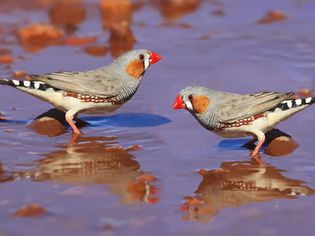
Facts About Finches
Finches are tiny birds, so it can be easy to overlook them. However, these little beauties are amon
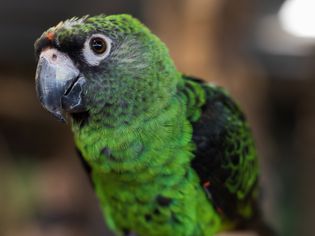
Jardine Parrot Species Profile
Jardine parrots are similar in appearance to their Amazon parrot cousins but their personalities co
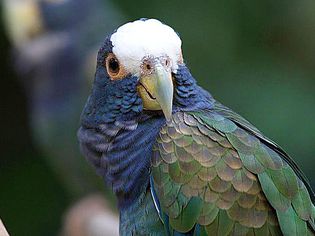
White-Capped Pionus: Breed Species Profile
White-capped pionus parrots are beautiful, curious, intelligent birds that can make excellent pets
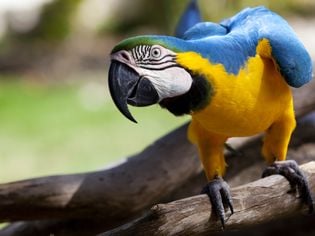
Psittacosis (Parrot Fever) in Birds
Also known as parrot fever or avian chlamydiosis, psittacosis is an avian disease that many bird ow
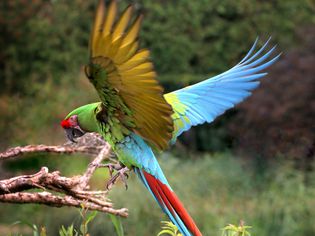
Military Macaw: Bird Species Profile
Besides being chatty and social, military macaws are large parrots that have a reputation for being
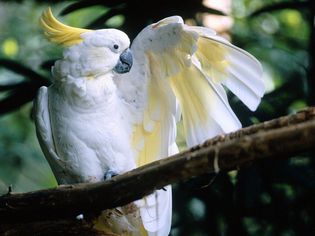
Sulphur-Crested (Greater) Cockatoo: Bird Species Profile
The sulphur-crested cockatoo is one of the largest of the several species of beautiful white cockat
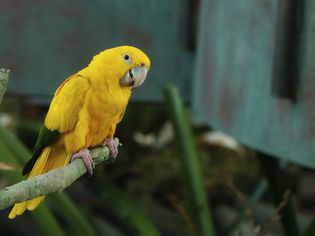
8 Top Yellow Parrots to Keep as Pets
When people think of yellow birds, canaries often come to mind. But there are many beautiful parrot
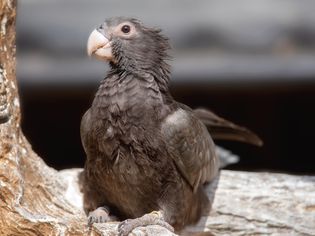
Vasa Parrot: Bird Species Profile
The Vasa Parrot is a medium-sized gray parrot that hails from Madagascar. The Vasa Parrot is about
About WhiskerClub
We are a premier digital platform committed to delivering high-quality content to our readers. Our mission is to provide accurate, reliable, and engaging information that adds value to our audience's daily lives.
Our team consists of experienced content creators and subject matter experts who uphold the highest standards of professionalism. In an era of information overload, we curate content with care, ensuring our users receive only the most relevant and trustworthy information.
Beyond just reporting facts, we focus on depth and context. Through expert analysis, comprehensive research, and clear presentation, we help our audience gain meaningful insights and make informed decisions.
We take pride in being a trusted information source for our growing community of readers. Our user-first approach means we continuously adapt to provide content that meets our audience's evolving needs and interests.
Innovation and excellence drive everything we do. We're committed to improving our platform and services to deliver the best possible experience for our users.

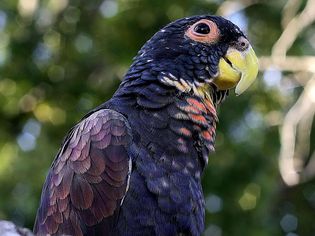
Comments on " Bronze-Winged Pionus: Bird Species Profile" :